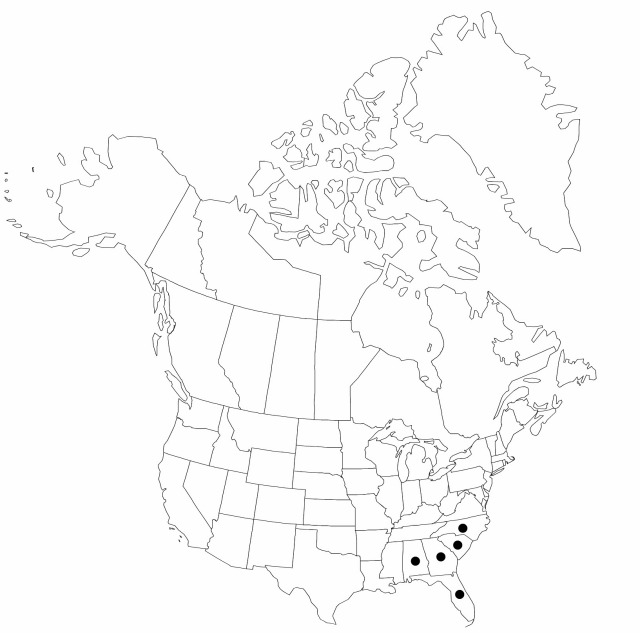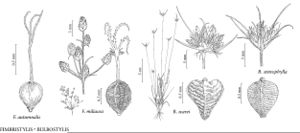Bulbostylis warei
Bull. Misc. Inform. Kew, addit. ser. 8: 26. 1908.
Herbs, perennial, densely cespitose, scapose. Culms (10–)15–40(–50) cm. Leaves 1/2 length of culms; sheaths brown to red-brown, glabrous, or scabrid along ribs; blades narrowly linear, 0.7–1 mm wide, flat or involute, glabrous or scabrid along ribs, margins distally scabrid. Inflorescences: scapes 5, erect to ascending, terete, many ribbed, 1–2 mm thick, stiff; spikelets in dense globose to hemispheric, involucrate heads, 1–2 cm wide; longer involucral bracts with setaceous blades usually exceeding inflorescence, basally dilating to broad pectinatefimbriate sheaths. Spikelets pale brown or redbrown, ovoid, somewhat flattened, 4–5 mm; fertile scales ovate, keeled, 4–5 mm, apex acute, puberulent, midrib included or excurrent as mucro. Flowers: stamens 3; anthers linear, 3 mm. Achenes white or yellowish, broadly trigonous-obovoid, 3-lobed, 1 mm, each lobe carinate, biconvex, apex retuse, surface coarsely, transversely rugose; tubercle a minute, dark button. 2n = 30.
Phenology: Fruiting summer–fall.
Habitat: White and yellow sandhills mostly in open evergreen oak pine, or deciduous scrub oak pine forest or sandy wasteland therein
Elevation: 0–200 m
Distribution

Ala., Fla., Ga., N.C., S.C.
Discussion
Selected References
None.
